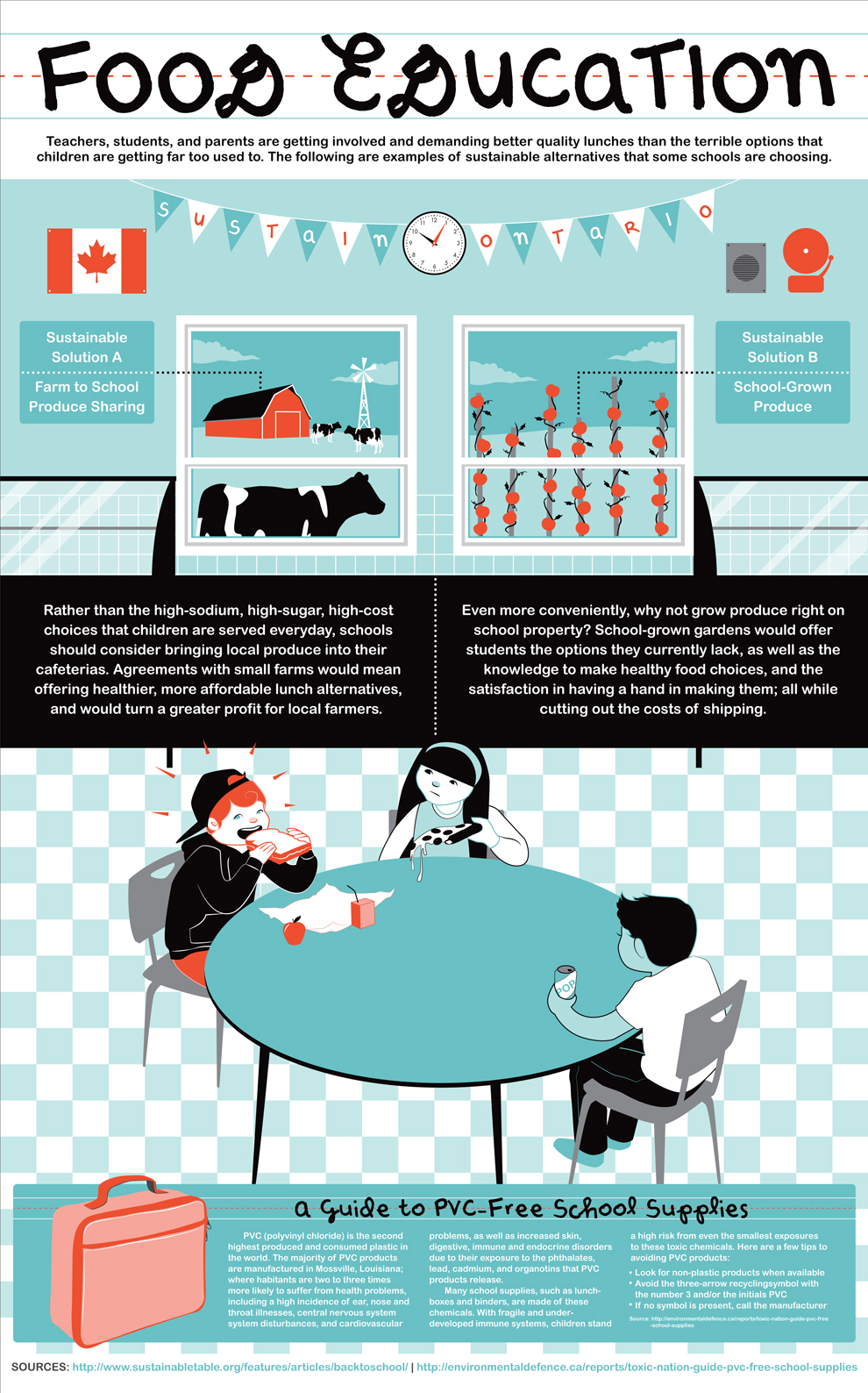Raising the Bar on Student Food Programs
Posted: December 20, 2013
Categories: Edible Education Network / News from Sustain Ontario / Schools
 The need for a universal student food program was the topic of conversation when Food Secure Canada’s Children & Food Network gathered in Montreal on November 26th & 27th.
The need for a universal student food program was the topic of conversation when Food Secure Canada’s Children & Food Network gathered in Montreal on November 26th & 27th.
A few striking facts were brought forward at this meeting: that Canada is one of the only Organisation for Economic Co-operation and Development (OECD) countries that does not have federal support for student food programs. And that only 5 provinces (Ontario is one) partially fund these same programs.
This meeting, that brought together leaders in student food programming including FoodShare Toronto, Breakfast Club of Canada, the Heart and Stroke Foundation, and a number of Indigenous nations and organizations, was the first face-to-face meeting of the Raising the Bar on Student Food Programs initiative. Through this collaborative project, the network agreed to work together to obtain adequate funding commitments from all levels of government for a student food program that:
- is universal
- is cost-shared
- supports existing programs and diverse approaches to student food
- serves food that is healthy and culturally appropriate, as well as locally and sustainably sourced as much as possible
- includes food skills/food literacy where possible
To start, the network will map school food programs across the country in an effort to answer various questions: Who is funding these programs? How many kids are being fed? What is it costing to run these programs? What are some great models for running / funding these programs?
Furthermore, in 2015, FSC will host a national dialogue with parents, students and front line workers to see what student food programs are working and to see what role the public would like the government to play in providing all students with access to healthy and sustainable food.
Visit the FSC website to read their direct account of this meeting.
Background:
As we learned from various reports this year, the health of our children is a growing concern. The health crisis is largely a product of our current food systems and surrounding food environments. Children, and adults for that matter, are consuming a significant amount of their energy from sugar, fat, highly refined grains or junk food. Prevention-oriented strategies need to be employed to reduce obesity and diet related diseases through fostering good dietary habits.
Schools are in a unique position to influence children’s health as they can provide students with both an opportunity to consume healthy foods and also to develop the knowledge and skills needed to make healthy food choices. It is time for Canada to join the rest of the OECD countries.
The Conference Board of Canada reported earlier this year that “A pan-Canadian school meal program should be established to help ensure that children and youth have access to sufficient safe and nutritious foods in their everyday settings.”
